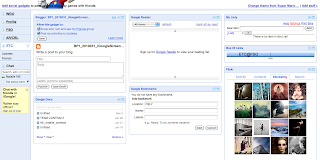
Blogs have become the new way of getting the news to the audience quicker. At first blogs were used through the news now it has made its way into the educational arena. When I was introduced to blogs I was told to be mindful of the information provided because some may not be a reliable source. Now that I have been informed I am very cautious of what is written. Using this as a tool in the classroom students came keep up with assignments and any changes that may occur in schedule of class time. I would also use blogs as a critical thinking assignment, teaching students to learn to decipher reliable and unreliable information.
As I was researching I found an article entitled, "Educational Blogging" by Stephen Downes. Downes (2004) provided five examples of higher ed use of blogs. He stated,
"first, teachers use blogs to replace the standard class Web page and instructors post class times and rules, assignment notifications, suggested readings, and exercises. Second, instructors begin to link to Internet items that relate to their course and short essays. Third, blogs are used to organize in-class discussions this enable students get to know each other better by visiting and reading blogs from other student’s. Finally, students may be asked to write their own blogs as part of their course grade. After a course is over, the discussion board is no longer accessible to the students. When a student creates a blog, he or she also has a sense of ownership.” (Downes, 2004)
After reading this article, I was inspired so much that it persuaded me to use blogs in my classroom. That I teach a technology class, I am going to allow my students to create a blog, and instead of them turning in projects on a jump drive I am going to allow them to post their assignment. That way when they complete my class they will always be able to refer back to a project they have produced and show it to whomever they would like.
Reference
Downes, S. (2004, October). Educational Blogging. Retrieved April 31, 2010, from Educase: http://www.educase.edu/EDUCASE+Review/EDUCASERReviewMagazineVolume39/EducationalBlogging/157920



